Chris Rea on his guitar origins, Strats, the blues and La Passione
A rig tour and expansive talk with the UK bluesman
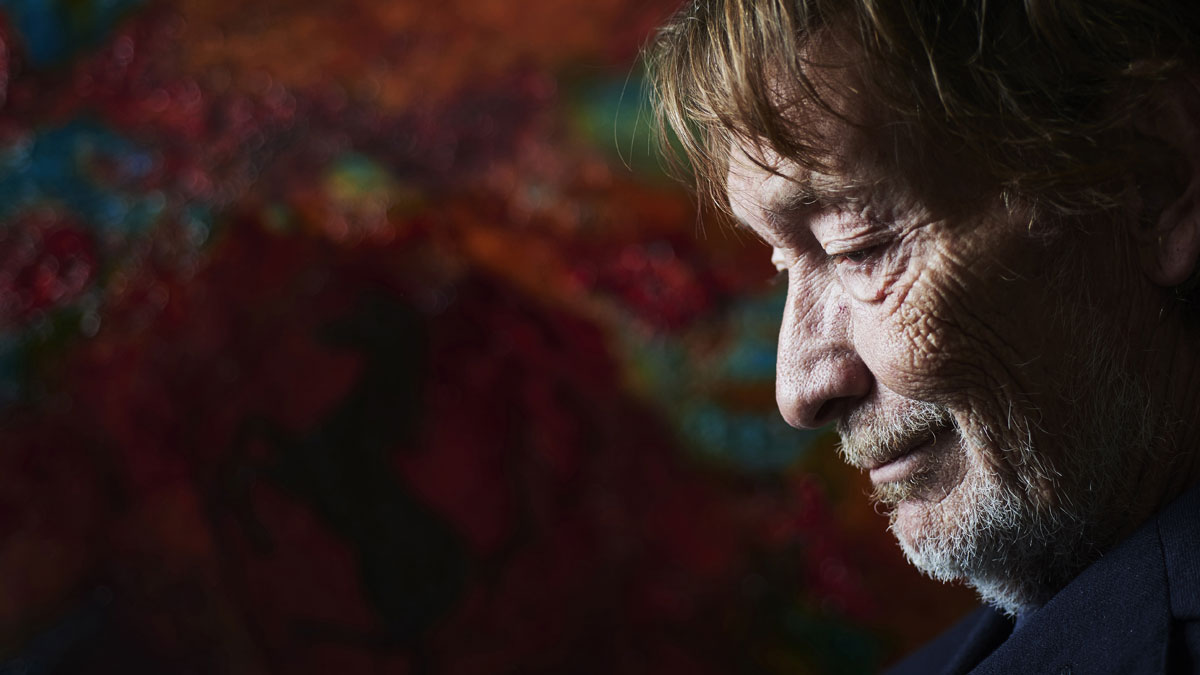
Introduction
The re-release of Chris Rea’s La Passione is a supremely deluxe package, but it also forms a kind of closure for the celebrated bluesman…
“This is an idea that happened because of my father and my uncles. I was surrounded by Italian red cars, even in Middlesbrough!”
We’re sitting in Studio Two at Abbey Road Studios and Chris Rea is telling us how his enthusiasm for Formula 1, Ferraris and the tragic hero of his childhood, racing driver Wolfgang von Trips, fused together to feature in his 1996 project, La Passione. “When I was a kid, I learned that the red cars always win,” he smiles.
When all the obvious corporate sh*t started happening, things quickly went wrong. Very wrong
At the time, La Passione was seen as being a very personal project and an ambitious one, too. In its original form, Chris imagined it as a simple tale of a young boy, dreaming about a famous Ferrari, set to a stunning soundtrack comprising a mixture of orchestral and guitar-based music.
At the time, stars such as Billy Connolly and Peter Capaldi were in advanced talks to star in the movie, but sadly, Chris’s primary vision was never fully realised. Despite the finished film receiving some very encouraging reviews, he felt that the idea had been hijacked, the script changed and, in his own words, “When all the obvious corporate shit started happening, things quickly went wrong. Very wrong.”
It’s something that has clearly niggled him for 20 years, because La Passione has now been re-released in a completely new format. The revitalised version consists of two CDs and two DVDs enclosed within a 72-page book. It includes new music and has clearly pleased its creator at long last.
“When you take a Ferrari GTO around a race track and spend the whole day filming it, you’ve pretty much died and gone to heaven,” he says.
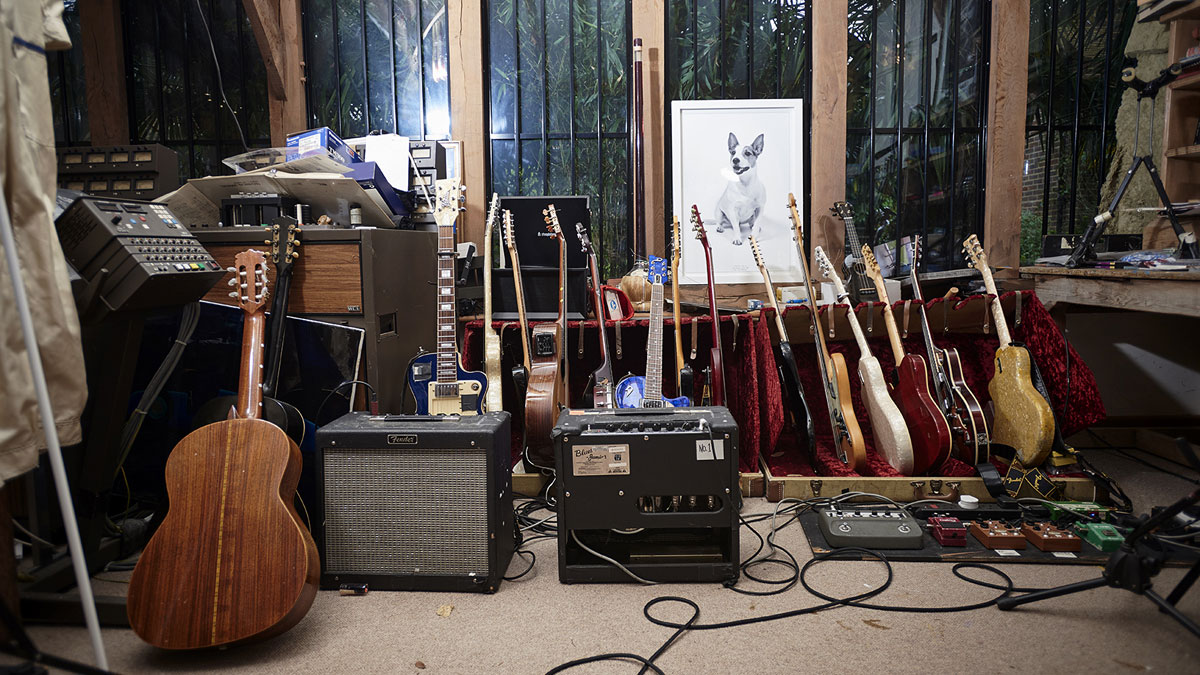
Spinning off the track
So, how did the original version veer so horribly off track for Chris?
“At the beginning, La Passione was meant to be Warner Bros’ first music DVD. I could see the way the music business was going and I thought, ‘Okay, let Warners have the first-ever musical DVD, something to watch whilst you’re listening to music.’
“And they thought it was a great idea and we started - and more and more people were turning up and I didn’t know who the fuck they were. ‘Oh, that’s Arty somebody, he’s from Warner Vision, he’s flown over from…’ and they’re all yapping away and none of them could get their heads round the idea that it wasn’t meant to be a story.
I used to be a roadie, I never played guitar until I was 22. The ambition wasn’t to be a rich pop star, that didn’t appeal to me at all
“It was just this nice little idea that a little boy is told stories of the red cars by his uncle. He’s got his own little Dinky and he goes to bed and the world begins according to the stuff he’s heard.
“Anyway, egos went all over the place and I lost complete control of it and what I intended it to be hardly went in to the terrible, boring film. And the other thing that really hurt was I did three tracks - which sadly we lost - where, if something mischievous happened, the original idea was to bring in the slide guitar that would start playing a Count Basie routine. All that never happened, it was a shame.
“They didn’t understand at all, especially the Americans, I mean… I got permission at Ferrari to have their place for a day and there was no film stock left - and I think that sums up the project.”
Let’s go back to the beginning. What was the first thing that made you want to begin playing guitar?
“I used to be a roadie, I never played guitar until I was 22. The ambition wasn’t to be a rich pop star, that didn’t appeal to me at all. But it was when I heard gospel blues, that was what really changed me. It wasn’t Chicago blues; it’s not pentatonic, it’s more European. Also [it’s] the content of the gospel blues I find more moving.”
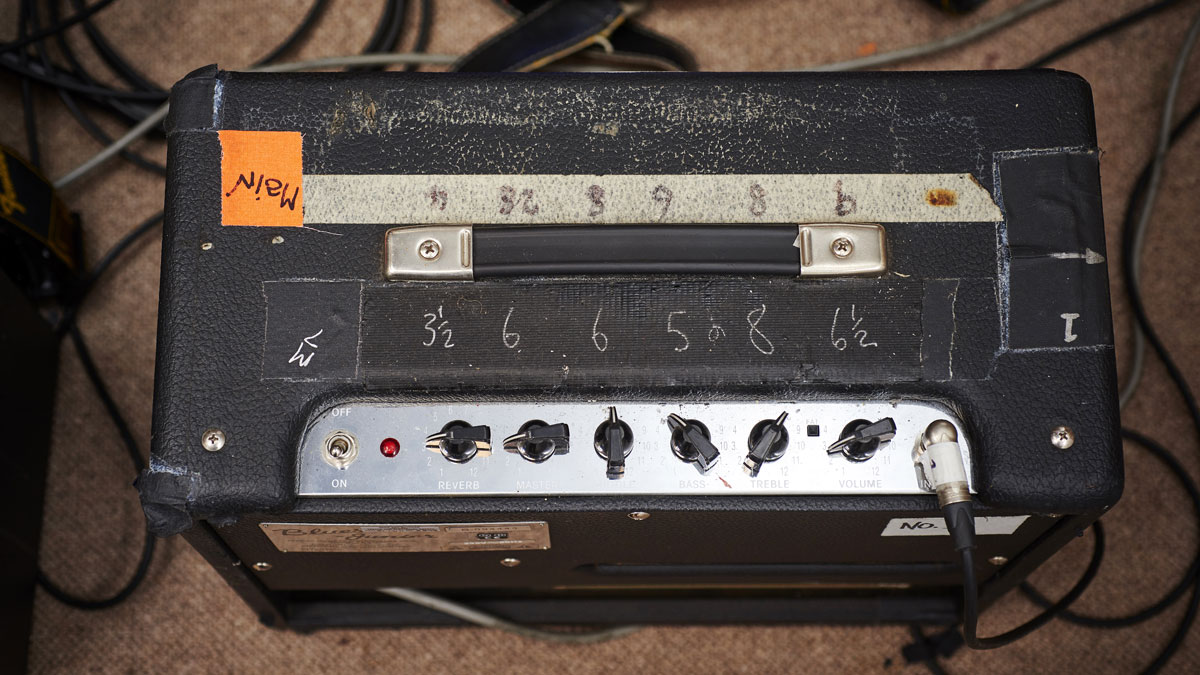
Patent Patton
Which artists in particular changed you?
“What happened was I was going out on a Saturday night, so I went into my mam’s bedroom, she’s got a double mirror, really kitsch 50s. So I’m in there, doing that, and she’s got an old alarm clock where the radio comes on, but she never learned how to do it properly. And it came on.
My first bottleneck was my older sister’s nail varnish bottle, which caused a lot of trouble
“I remember it was ten past three in the afternoon and it was winter, it was getting dark, and it was when the BBC had just started doing Telstar live things from America. It was some station in Memphis - one of those classic names, ‘RK 51’ or whatever.
“On it came and there’s this record. The satellite thing was a bit cloudy and it was a 78 record and there was compression on the radio, so it was this strange kind of musical blur with this voice coming through: Charley Patton.
“On that night I told the bass player of one of the local bands that I’d heard this record and it sounded weird, it sounded like a violin. He said, ‘No, it’s not a violin, it’s a slide guitar.’ I thought, ‘What’s one of them?’”
Would you say your slide playing began almost straight away?
“My first bottleneck was my older sister’s nail varnish bottle, which caused a lot of trouble. Boots pink nail varnish, I’ll never forget it. Then I was off to the pawn shop and there was a Hofner V3 - millions of buttons.
“Also, it had been pawned by a German seaman who’d obviously spent all his money or whatever, so I wonder if it was bought in Hamburg, you know? The week after I got a 25-watt Laney and that was it: I just spent, I reckon, over a year in my bedroom. Nothing else mattered.”
And the blues remains an important centre for your writing?
“Without a doubt. I would say that everything I ever write starts as some kind of blues. I mean, when you think of Road To Hell… ‘Stood still on a highway’ - it sounds like gospel…”
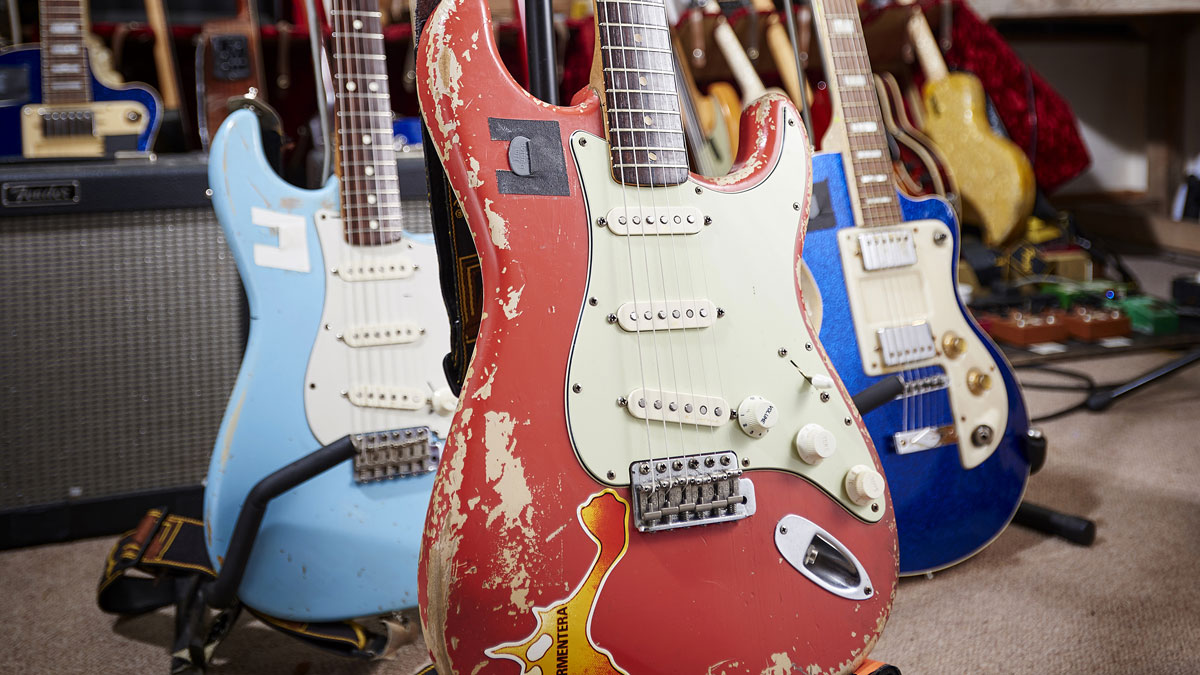
Pink vs blue
What attracted you to the Stratocaster?
“My first Strat was because I saw Ry Cooder at Newcastle City Hall. Dark End Of The Street became like, ‘This is it’; his solo he did that night in the City Hall just blew me away, absolutely blew me away. So I needed to know how he got the sound and why he got that sound. I got my first Strat: pink, 1962, 220 guineas, and that became Pinky.”
You play an Italia Maranello guitar these days. Why the switch from Pinky?
Pinky can almost sound like a Hawaiian guitar. She’s a lovely sound, which is a complete accident
“A lot of people like the early Chris Rea records because Pinky can almost sound like a Hawaiian guitar. She’s a lovely sound, which is a complete accident. It doesn’t sound as hard as a real Strat should. But I wandered into Denmark Street and I saw this funny looking guitar and I said, ‘What’s that?’ and this little kid in Denmark Street - fabulous slide player - said, ‘You don’t want that, it’s a load of shite.’
“It was the Maranello, blue sparkle and not a bit of wood anywhere. I said, ‘I’ll take that home and I’ll bring the money in next week if I’m keeping it. I’ll bring it back if I’m not.’
“The action didn’t matter because I wanted to play with a G capo and people who have played that guitar say, ‘We don’t understand you at all…’ If you press down on the strings the intonation just goes like a thunderstorm - you know, it’s horrendous. But because it’s just slide all the time it doesn’t matter about the intonation, so that was Bluey and it’s been my main guitar now since Stony Road.”
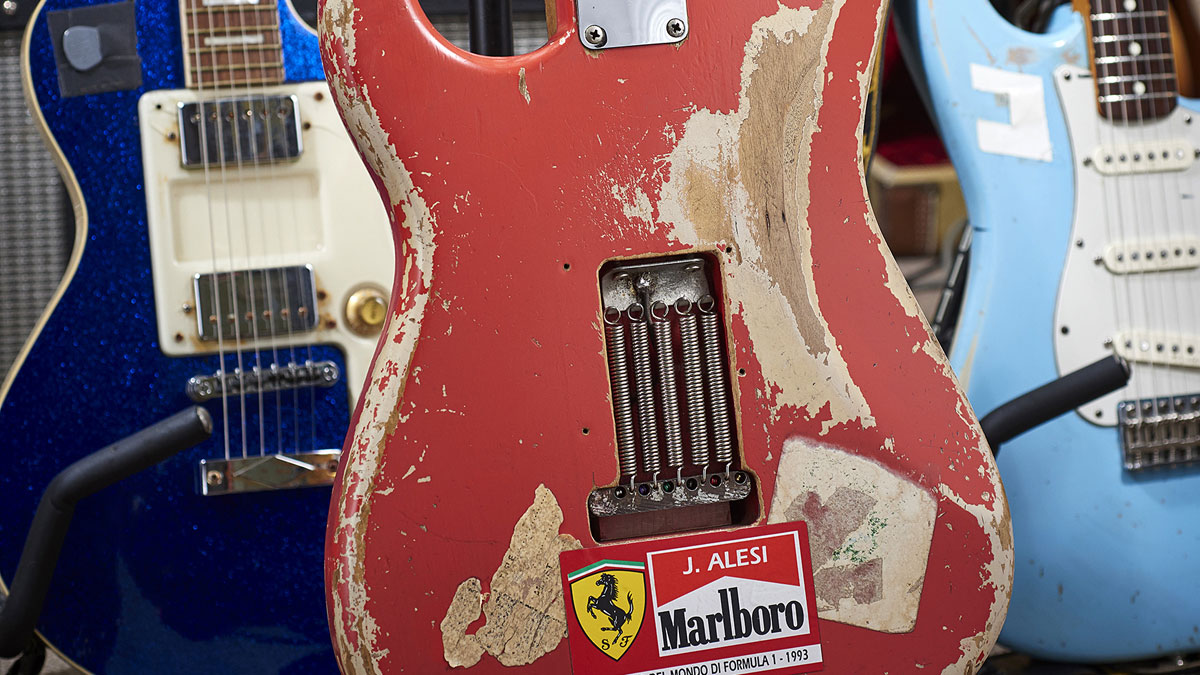
Lighting rigs and Wembley gigs
Do you still use Pinky?
“I still get Pinky out, but here’s the trouble you have with Pinky: it’s these big lighting rigs. Oh my God, I’ve become suicidal, sometimes. You’re doing your first ever Wembley gig and you want to do your little moment. I’m like a prima donna about this quiet bit in I Can Hear Your Heartbeat.
We tried everything, nothing ever worked. It’s just what a Strat is. We dipped, we did the f***ing tin foil...
“I think one of the things me and Mark [Knopfler] really, really shared was the ‘coming down’ bit. I don’t know why it did for the pair of us - the coming down bits in Telegraph Road, for me, are some of the best pieces of music ever written.
“So there I am at Wembley and the volume pot goes down to six and the dimmer racks all start going so it goes darker and I’m just hearing ‘yeawooww’ and I nearly didn’t make the gig, I was just beside myself, you know?
“We tried everything, nothing ever worked. It’s just what a Strat is. We dipped, we did the fucking tin foil, and then you try everyone’s noiseless pickups but the more noiseless they become, the less like a Strat they sound till you get to the point where there’s no buzz and you don’t want to play it anyway!”
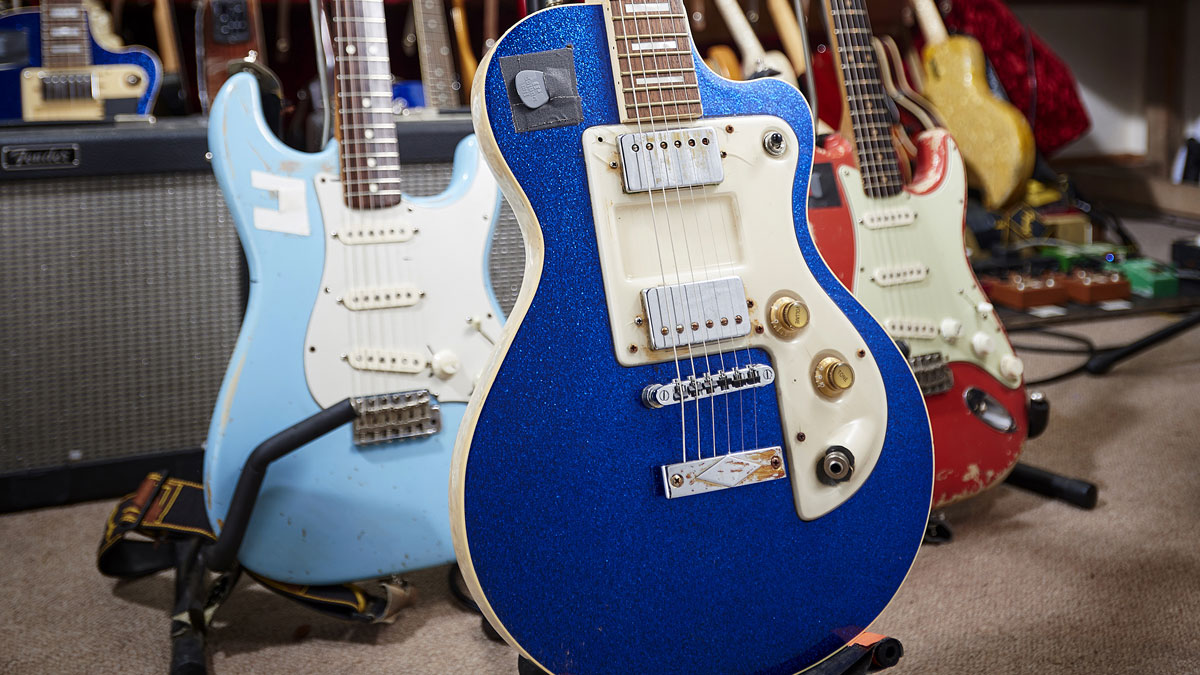
The Blue Guitars
Apart from La Passione, you’ve been engaged upon another ambitious project, The Blue Guitars, which also came with a lavishly illustrated book…
“We did 11 CDs, each with a certain type of blues and we had to do it the way it was done then. I was picking up little Supra amps off Andy Fairweather Low and it had to be the same microphones… and that was a lot of fun.
[On downloads]: if you give the public - in any walk of life - the opportunity to buy something for 22 apples instead of 30, you take the 22
“We did 11 CDs and I did all the pictures for them. We put it out at 30 Euros with the book of pictures and we sold 170,000 of them. And the only people who didn’t understand [why we did that] were the record companies!
“There’s definitely something… I mean, I know life has changed and I know we’re all getting older but they’ve killed the culture, without a doubt. I mean, last year I honestly couldn’t believe what I was looking at. Don Henley from the Eagles brings out his new solo record and I listened to that album on YouTube before it was even released.
“I would gladly have got in a car, gone into Maidenhead or Windsor, gone in to a record shop and bought Don Henley’s new record. Great. Get home, sit down… Who needs to buy it when it’s there, anyway? And they don’t understand this bit.
“They came on to me last year about Blue Guitars and said, ‘I don’t suppose you know you can’t download Blue Guitars,’ and I said, ‘Yes, I do know. I don’t want to download it.’ They said, ‘Why?’ and I said, ‘Because no-one will ever buy the book again.’ And one of the main reasons it did 170,000 was they had to buy it or not buy it. But if you give the public - in any walk of life - the opportunity to buy something for 22 apples instead of 30, you take the 22, even if someone’s telling you the 30 is better than the 22! It’s human nature.”
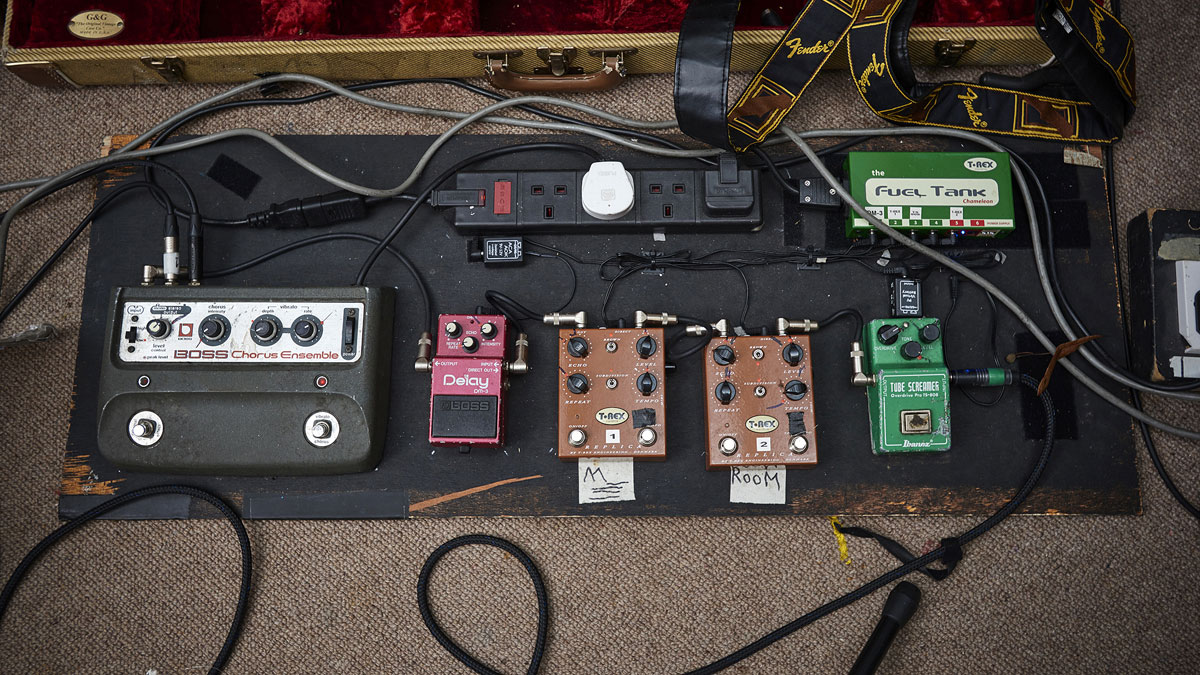
A hard road
So, you’ve experienced the effects of the onset of streaming, illegal downloading, and so on, first hand?
“Well, yes, and we know that from Driving Home For Christmas. Driving Home For Christmas was never meant to be a single, it was on a ‘best of’ album [New Light Through Old Windows: The Best Of Chris Rea, 1988].
I feel sorry for the young Chris Reas who aren’t pop stars but love music, but they don’t have anywhere to go with the music, you know?
“Every Christmas we got a nice little present off God, you know, with sales of The Best Of… and since it’s gone in to YouTube the shortfall is over 90 per cent because people don’t need to buy the record. They would but you’re offering them Driving Home For Christmas for 32p.
“You see, I’m lucky - we did very well. I feel sorry for the young Chris Reas who aren’t pop stars but love music, but they don’t have anywhere to go with the music, you know? I mean Derek Trucks, it’s just criminal what’s happened to his potential sales because of what’s happened to the business.
“In the old world, I’d have picked up a paper or watched an Old Grey Whistle [Test]-style programme and seen this new kid who’s extremely different to everyone, and he should be a household name.”
La Passione is available now via Jazzee Blue/Universal, comprising two CDs and two DVDs within a 72-page book.

